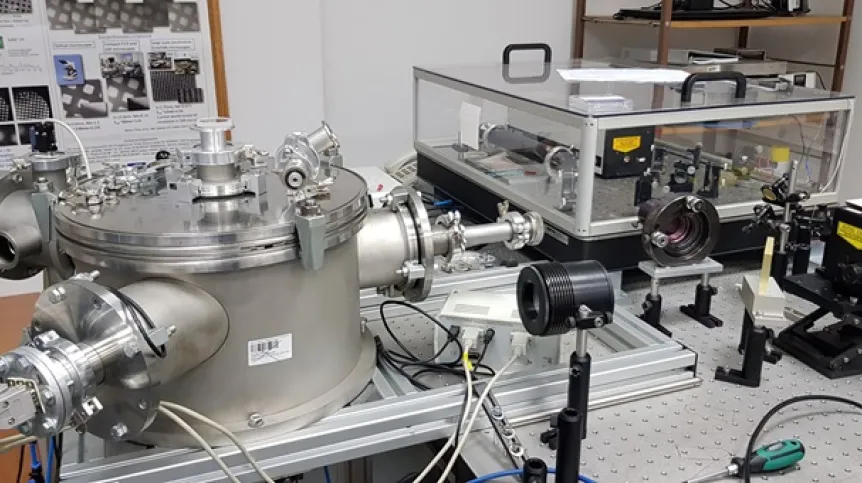
Research equipment belonging to the Institute of Optoelectronics at the Military University of Technology will be made available to foreign scientists within the European Lasers4EU project. The EU has allocated EUR 5 million to a platform for mutual access to infrastructure, which will enable research on laser technologies and their applications.
The project involves 29 research units from 15 countries. Experts from each centre will conduct comprehensive training in the scope of their laser technologies and their applications for the rest of the academic and industrial community.
The Institute of Optoelectronics of the Military University of Technology is the only Lasers4EU project partner from Poland to share equipment developed by the Interaction of Laser Radiation with Matter Team.
'The unique equipment will be useful in materials science, nanotechnology, biomedical engineering, laboratory astrophysics and biomedicine research. Its operation is based on laser-plasma sources of X-ray and extreme ultraviolet (EUV) radiation using a gas puff target. These sources were also developed by the same research team', says Professor Henryk Fiedorowicz from the Institute of Optoelectronics.
The Lasers4EU project is a platform that enables external users to access the European laser research infrastructure. Leading laser research centres in Europe, including the Institute of Optoelectronics of the Military University of Technology, offer scientists from academia and industry access to the latest laser technologies and research services.
He adds that an important part of the project is training related to the shared equipment. Training participants enrich their theoretical and practical knowledge with specialist information in the field of laser technologies and applications.
'The launch of the EU-funded Lasers4EU project marks a new era in research on lasers and their applications', says Professor Fiedorowicz. In his opinion, a coherent and comprehensive scientific consortium ensures access to high-quality research services.
The project aims to increase the geographical reach of European research infrastructure, support new initiatives in this area and foster cooperation between laser centres. One of the goals is to also increase the number of specialists in the field of lasers and their applications in Europe. Comprehensive training is to equip the next generation of scientists with the skills and knowledge needed to fully utilize leading European laser infrastructures.
The inaugural meeting of the Lasers4EU project, with the participation of representatives of all participating scientific units, took place in Heraklion, Crete, on October 21-22, 2024. The project started on October 1.
Detailed information on the Lasers4EU project, including the offered research infrastructure and guidelines for future users and the rules for obtaining access, is available on the project website at: https://lasers4.eu.
An analogous project RIANA is currently ongoing. It is an international hub for nanosciences and nanotechnologies, with three Polish scientific institutions participating: the Military University of Technology, the SOLARIS National Synchrotron Radiation Centre of the Jagiellonian University and Adam Mickiewicz University in Poznań.
PAP - Science in Poland, Karolina Duszczyk
kol/ zan/ kap/
tr. RL













